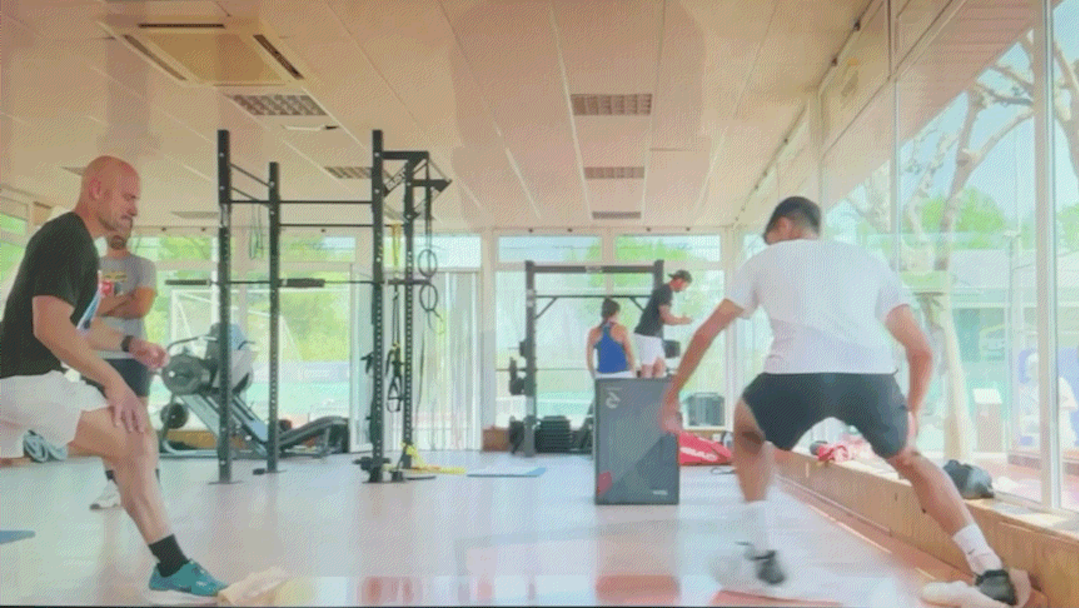Tennis Technology and Training
Last Tuesday we discussed “Wall Sits” which was a cardo fitness station I stumbled across scrawled onto a tennis court with chalk. Today I am exploring another station labeled simply “Squats.” There are a lot of good variations of squats that are good for tennis. Today we will assume that the this station was for the simple body weight version.
Squats are pretty much standard fare for tennis players. It works a lot of the muscles that are involved in tennis and emulates the tennis specific functional motion of getting the body low to the court. It is great for the glutes and quadriceps while also working muscles in the core.
Andre Agassi’s trainer Gil Reyes shared his “secret training” strategy in a Men’s Health feature than ran back in 2010. In order to work the core, Agassi’s routine included three sets of 10 squats performed with an 80 pound bar resting on his shoulder. An Olympic barbell is about 45 pounds, just to provide a frame of reference.
More recently, Men’s Health ran a workout feature on Andy Murray. Squats were also included in his routine with 6 sets of 5 reps. The weight wasn’t specified, but Murray did indicate that he uses a squat rack, so probably a little heavier than the 80 points that Agassi uses.
I regularly perform squats as a part of my fitness routine. My preferred way to do them is while holding a weighted medicine ball in front of my chest. I perceive that it adds a little more challenge while also disrupting my balance in a similar way to on-court tennis movement. A recent tennis workout feature in the Wall Street Journal recommends combining squats with a weighted overhead press for the same reason.
Unweighted body-weight squats were a staple of my hotel room workout back when business travel was still a prominent feature in my life. To properly execute a body weight squat, start in a standing position with your legs straight and feet shoulder width apart. Start each set by bending the knees until the thighs are parallel with the floor. To complete the rep, stand back up by straightening the knees. The head should remain upright, the back straight, and feet flat on the floor throughout the exercise.
An alternate body weight variation is the “Prisoner” squat which is executed by placing both hands behind the head as the squats are executed.
Regardless of the variation used, it is likely to be good for your tennis performance.
- Andre Agassi’s Workout, Amy Levin-Epstein, Men’s Health, October 5, 2010.
- Andy Murray’s Strength Workout, Men’s Health, May 5, 2018.
- Eight Exercises to Build Power and Improve Your Tennis Game, Jen Murphy, The Wall Street Journal, August 28, 2021.



